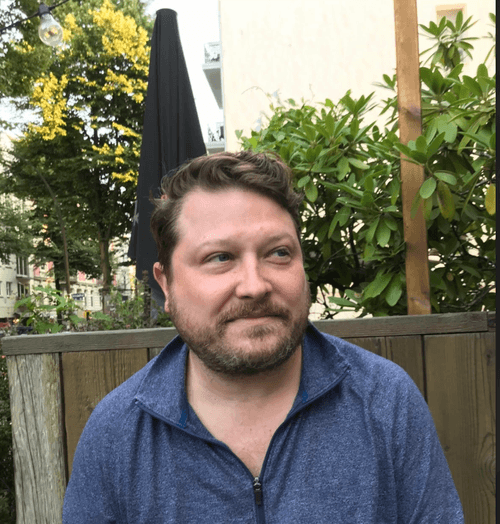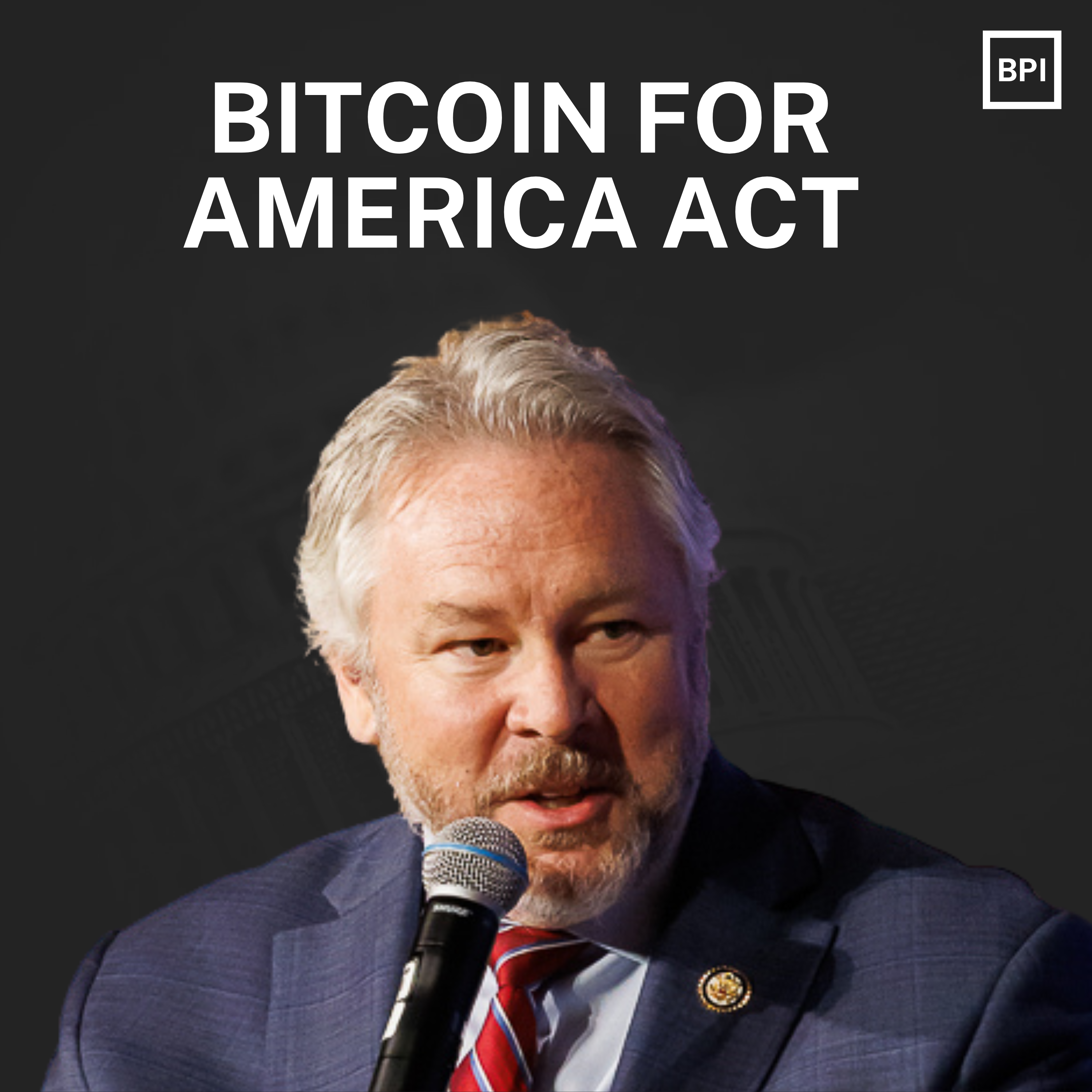Meet the Fellows: Michael Kelly
Learn more about BPI Senior Fellow Michael Kelly in the latest installment of our Meet the Fellows series.

What's your name?
Dr. Michael J. Kelly
What do you do for work?
Historian, Professor of Bitcoin Studies, & Entrepreneur
How did you wind up in your current role?
I landed in my current professor role at Binghamton University after earning my PhD in History in the UK and being an Associate Lecturer and Visiting Professor, respectively, at the University of York (UK) and The Hebrew University of Jerusalem. During my years at Binghamton, I have also been a Visiting Lecturer at University College Cork in Ireland, while on a Fulbright Fellowship, and a Senior Research Fellow in Germany at the University of Hamburg’s RomanIslam Centre. It was during my time in Hamburg that I really started connecting Bitcoin to History to Religious Studies.
As an entrepreneur, I have been developing successful projects in academia for over a decade, including the first genuine Open-Access academic journals in my field and the first genuine Open-Access imprint in the US, amongst other Web2 Digital Humanities accomplishments. I became a Web3 innovator and Bitcoin entrepreneur in the same way that most people have, by diving deep into learning about Bitcoin, experimenting, and meeting people. The turning point was my time in the Bitcoin Startup Lab in 2023-2024, which really helped me to transform my entrepreneurial skills to match the incredible opportunity that Bitcoin and decentralized Proof-of-Work systems provide for personal liberties, financial freedom, and an equitable labor environment.
How did you become interested in researching Bitcoin?
The idea of the separation of currency and state. Bitcoin offers another step toward the fulfillment of the Enlightenment’s project to democratize power and build a world of unexploited sovereign individuals. Bitcoin is simply a technology though. It cannot achieve anything if we don’t work hard to ensure that it is a revolutionary catalyst. In the mid-20th c., Herbert Marcuse argued in One-Dimensional Man that we had the technology then to achieve much of humanity’s aims and to raise the quality of life for all but that we must decide to use the tech in those ways. I believe that today we are at another point in time in which the social and religious conditions are just right for the appearance of a technical advancement such as Bitcoin to manifest a new historical reality. I believe that, in addition to my entrepreneurial energy, my expertise as a scholar, writer and educator, especially within the framework of the Bitcoin Policy Institute, can be a driving factor in the adoption of Bitcoin as decentralized currency and proof-of-work, distributed-ledger and decentralized AI systems for creating sustainable and sovereign lived realities.
What are your most significant intellectual interests aside from Bitcoin?
I’m a historian. To me, history is the scientific method (and as such is theory), the grounding of the human sciences, because it teaches us the basic three-step tool of all research and all personal understanding: first, how to determine evidence; second, how to turn evidence into facts (i.e., the process of facticity); and, third, how to assemble (via narration) those facts into a new truth (hence the complementing and essential role of literature, grammar, and rhetoric in knowledge production).
History is a social-data-producing machine: its primary output is data, simply. I believe that this data production is the core engine of a democratic society in that the source of our most poignant social disagreements is not about the truths as such but about the sources of the truth, i.e., the specific truth procedure (Layer-2) deployed via the Layer-1’s (historical method’s) consensus mechanism. In other words, the disagreements are over how the historical method was deployed to construct the truths being disputed, e.g., disagreements over what constitutes evidence, not over what the method is for truth construction, and this recognition provides the essential common ground for debate.
And I further believe that this desired common ground is evidenced across much of our primary social activities, from religious devotion to academic research to the very essence of money because they all attempt to achieve the same results: to connect the abstract to the real and to assign meaning and value both to the products of that union and the processes by which it is achieved. Thus, the historical method provides a universal basis (tool) for value in that it is the searching for the satisfactory deployment of data for aims.
Wittgenstein argues, in On Certainty, that all knowledge begins with abstraction. The historical method exemplifies this: evidence is determined only upon an existing plateau (or metaverse?) of abstractions. However, more than this, the desire to connect the abstract to the real at some moment in time is the essence not only of knowledge / truth production, but also of meaning, satisfaction and pleasure, whether it’s from a Christological or Kabbalistic union or mathematical execution allowing for an engineering accomplishment or the anticipation of the future use of money, the fulfillment of its abstract potential through the historical method: money is hedonistic, the ambiguous promise of future pleasure realized at a time of the holder’s choosing and in the manner they want.
Bitcoin is the ultimate theo-political fulfilment of this urge to finding meaning in and assign value to connecting the abstract to the real, a process that is history, and this is why I’m very intellectually engaged, as a Bitcoin scholar and a historian, in theology, mathematics, quantum mechanics, literature, and psychoanalysis. And this is why and how, furthermore, with a localized theory of value (vis-à-vis money), I will propose a draft equation for the theory of everything this Spring to my BPI Fellows cohort.
After all, what makes sense is what can be reduced to an equation. In her The Accumulation of Capital, Rosa Luxemburg establishes the generic equation for capitalist production – c + v + s + s’ = p[m] - completing the mission of Smith, Marx, and others. However, that equation was elicited from the evidence of a fiat system and imagined future, a world of fiat capitalism. Following Luxemburg’s lead but informed by the many scholars of capitalism since then, a new generic equation of capitalist production for an economy operating with decentralized currencies and markets in a network-state world is much needed and I hope that this work will contribute to that.
In short, I suppose that today most of my intellectual interest leads back to Bitcoin, gradually generating a Bitcoin theory that unifies the abstract worlds of the theological, existential and mathematical with the tangible effects in language, history, electricity and environment, and a subsequent and always-expanding passion for Bitcoin mining: the divine-like spark emanating immanence into a world as-yet-to-come.
How have your views on Bitcoin and cryptocurrency broadly changed over time?
I entered the Bitcoin and crypto space from the position of a Union leader and contractor negotiator and from a Humanities vision of open-access and a desire to decouple money from the State and thereby fulfill past attempts to do so, by the earliest Christians and pre-Rabbinic Jewish streams to the modern Kibbutz Movement. I was and am highly skeptical of centralized banking: we all agree that money equates to power in our society and yet, while believing in democracy, we the people haven’t yet taken control of the issuance of money and the private transacting of it. However, I soon was lured by the flashy yields of staking, fell down that rabbit hole and temporarily abandoned Bitcoin. From the chaos, though, emerged a cosmos with clear constellations, patterns, images, and provable and predictable laws of action, Bitcoin. What I had thought of as Medean destruction, crypto, now became a firm commitment to Bitcoin as the path toward a better future for us all because there is no second best.
What misconception about Bitcoin do you hear most from your colleagues?
Colleagues in the Humanities typically maintain that Bitcoin is unnecessary and therefore that its energy consumption is a waste of resources. I know that most of the audience reading this is about to jump through the screen upon hearing that, to pontificate about how Bitcoin is a major catalyst for environmental sustainability and that decentralized P2P digital cash is necessary, but rest assured that I regularly deliver that message to my colleagues on this and many other campuses, formally in workshops and informally in conversations.
I think the problem, that is, the misconceptions, derive from what I mentioned about the historical method: we may agree on the facts, that energy consumption is an essential part of our lives and that we should find cleaner and more sustainable ways to produce and consume energy, but we disagree on the sources of that information (the evidence) and that, once run through the process of facticity, creates competing truths. Once again, then, this highlights the importance of BPI and the promotion of Bitcoin Studies as a field, Bitcoin education, and Bitcoin advocacy.
That all said, even in the Humanities and in New York, most of the colleagues I talk to are actually pretty excited about Bitcoin and not only for its financial potential but also, if not especially, for its social and political value. Most colleagues – and probably most Bitcoin investors – don’t realize that Bitcoin is a technology, let alone one that can be used in myriad ways. Once my colleagues have understood the technological possibilities of Bitcoin, typically any reticence dissipates, other than the concern over decentralization.
And so lastly, colleagues – and some of my Bitcoin Studies students on campus – question and are, legitimately, concerned about the level of decentralization in the network, whether it’s in mining, or running nodes, or the disparate accumulation of BTC, or the reliance on internet servers and centralized producers, or in the programming world and Bitcoin core. I think that these are all valid concerns and are ones that we should continue to have discussions about as we work diligently to expand the decentralization of all Bitcoin processes.
What misconception about Bitcoin or the subject of your research do you hear most from Bitcoin enthusiasts?
The common misconceptions about Bitcoin that I hear involve a lack of technical knowledge, for instance, how a node operates (or what it is), what mining really is and what templates are, how Bitcoin is upgraded and why, a wide lack of understanding of energy and electricity, and about the immutability of certain aspects such as the 21m cap (I have been guilty, of course, of all this non-knowledge in the past).
Otherwise, amongst enthusiasts there exists a division of opinions on what we can and should do with the Bitcoin network, some of which may stem from misconceptions, namely, over where data is stored and how, or options for it. But, mainly, it’s a difference of opinion amongst enthusiasts.
On my research and my teaching, people are often confused about the wider possibilities of Bitcoin and about how it could relate both broadly to historical research and to my specific chronological and thematic historical expertise in Late-Antiquity/the Early Middle Ages and Religious Studies (Catholic & Judaic Studies). I’d be happy to elaborate on another occasion about how they relate, but I also invite everyone to my lectures :)
What are your hopes for the future of BPI?
BPI is the preeminent national thinktank for Bitcoin and all related issues and is the obvious first place for anyone wanting to find research about the industry and to connect with relevant scholars. I would like to see the BPI continue to expand on the way to becoming internationally recognized as the most significant Bitcoin research and advocacy Institute in the world. Moreover, I envision the BPI helping to forge the nascent academic discipline of Bitcoin Studies, funding future chairs of Bitcoin Studies at universities and research centers, and sending scholars around the States and abroad to educate in Bitcoin and assist with Bitcoin development. Finally, I see the BPI sustaining an active community of scholars and potentially offering masterclasses for the public, on-site and at select mining facilities open to the public (such as those on the campuses of public universities like mine)
Lightning Round
Favorite novel?
War and Peace, Tolstoy - sounds cliché but if you haven't read it, read it and you'll see how 1200 pages feels too short.
Favorite U.S. President?
JFK
Who is your biggest intellectual influence?
Nietzsche, Emerson, Beauvoir, and Badiou



.svg)


.png)
%20copy%205.png)
